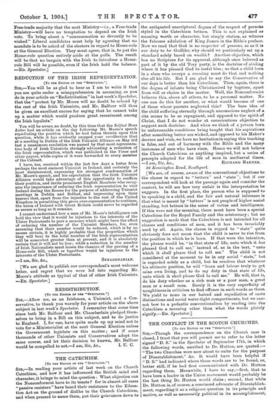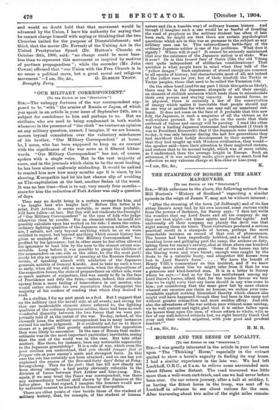[To THE EDITOR OP TEE "SpEcrAToft.1
Sm,—Though the correspondence on the Church case is closed, I trust that you will permit me to refer to the letter signed "D. S." in the Spectator of September 17th, in which the following words, ascribed to Dr. Hutton, are quoted :— "The two Churches were now about to unite for the purpose of Disestablishment," &c. It would have been helpful if "D. S." had indicated where these words are to be found, or, better still, if he had first communicated with Dr. Hutton regarding them. Meanwhile, I have to say,—first, that to have been a leader in the Union movement would probably be the last thing Dr. Hutton would claim ; second, that while Dr. Hutton is, of course, a convinced advocate of Disestablish. ment, regarding it as a religious question in its principle and motive, as well as necessarily political in its accomplishment, and would no doubt hold that that movement would be advanced by the Union, I have his authority for saying that he cannot charge himself with saying or thinking that the two Churches united for the purpose of Disestablishment; and third, that the mover (Dr. Forrest) of the Uniting Act in the United Presbyterian Synod (Dr. Hutton's Church) on October 30th, 1900, said: "no charge could be more base- less than to represent this movement as inspired by motives of partisan propagandism "; while the seconder (Mr. John Cowan) affirmed that "our Union with the Free Church is in no sense a political move, but a great moral and religious























































 Previous page
Previous page